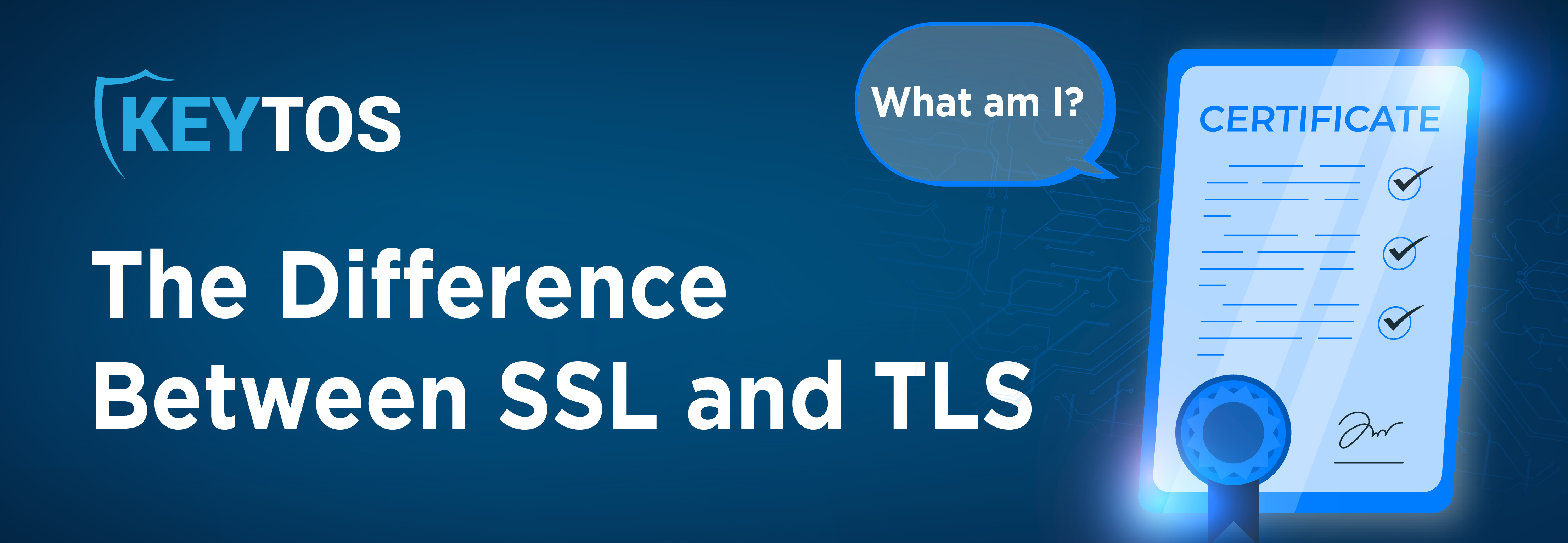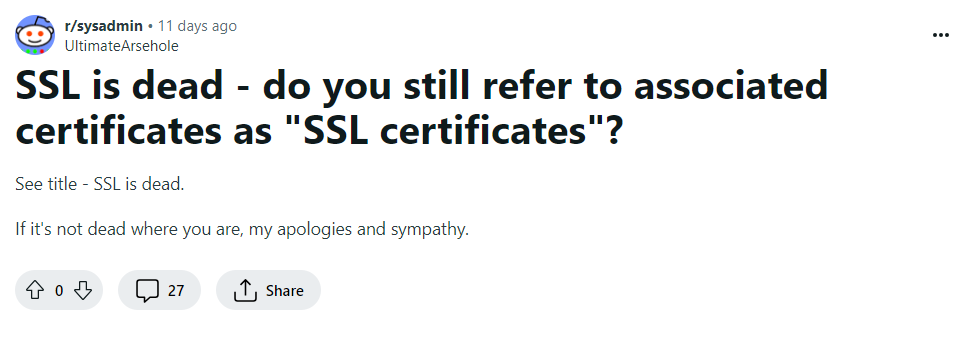
What's the Difference Between SSL and TLS?
SSL vs. TLS Certificates

A crucial security measure for organizations interacting with customers is safeguarding the data exchanged between both entities against external threats. If data integrity is compromised, it erodes the trust of customers or data recipients as their information becomes vulnerable. Leveraging SSL and TLS certificates ensures over-the-air data remains secure. In this blog, we will aim to clarify the mystique surrounding the difference between SSL and TLS certificates – if there is any.
What Are SSL Certificates?
The world of certificates is awfully complex, so we’ll try to break this down as simply as possible. Essentially, Secure Sockets Layer (SSL) certificates are your digital passport – they are cryptographic tools used to verify a user’s identity. SSL certificates play two pivotal roles: authentication and encryption.
1) Authentication: The same way how an ID or passport validates a person’s identity, an SSL certificate validates the legitimacy of an online entity, be it a server, a domain, or even a user. By doing so, it creates a blockade against bad actors who might want to disguise themselves as legitimate parties. When you go to a website and see a padlock symbol or “https://” in the search bar, it means that the site’s identity has been verified by a certificate, confirming to you that you’re using the real site and not a fraudulent one used to phish innocent people.
2) Encryption: SSL certificates also play a significant role in securing data exchanges. When data is exchanged between two parties, it is vital to ensure that the data cannot be intercepted and accessed by unauthorized entities – that’s where encryption comes in. The public key embedded in a certificate is used to encrypt the data, transforming it into a code. This encoded data can only be decoded (or decrypted) by the entity with the corresponding private key. Basically, it’s like sending a sealed letter where only the intended recipient has the unique letter opener to open and read it.
What Are TLS Certificates?
Transport Layer Security (TLS) Certificates are, when it’s all said and done, simply more secure SSL certificates. Think of TLS certificates as the next evolutionary step of SSL certificates. While the two are practically the same in every way, TLS certificates are naturally more secure than SSL certificates just because they are more up-to-date and modern.
So: Are SSL and TLS Certificates Different?
When it comes down to it, SSL and TLS certificates only have one real difference: modernity. Aside from TLS certificates being more modern, there is no distinct difference between the two (besides their names). You might see people online proclaim that SSL is dead or that TLS is exponentially more secure, but for all intents and purposes, you can’t go wrong with either. It’s like choosing between a plain hamburger and a hamburger with lettuce on it – sure, one technically has something more than the other, but no one is seriously claiming that the lettuce makes the burger exponentially better.

TLS and SSL Certificate Management Best Practices
Of course, with great certificates come great responsibilities! If your organization is handling SSL/TLS certificates, they should be following these best practices:
-
Use a certificate management tool to automate certificate lifecycle management
-
Rotate certificates that are not protected by an HSM every 30 days
-
Rotate computer leaf certificates every 90 days
-
Rotate human certificates every 1-2 years
-
Have clear policies and procedures
-
Employ crypto-agility to be as scalable as possible
For a more in-depth look at these best practices, check out this blog!
We understand that handling SSL/TLS certificates can be, well, a handful – that’s why we developed EZCA, the best certificate management tool for Azure, and EZMonitor, the best SSL certificate monitoring tool for Azure. For more information on how these tools can help you, schedule a FREE consultation with one of our PKI experts today!


